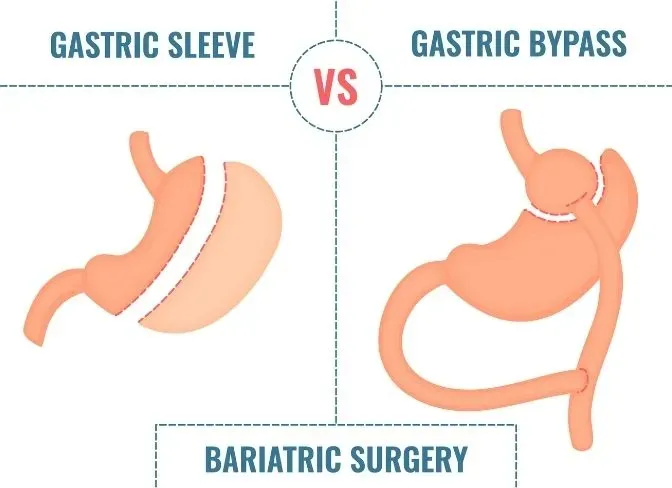The period of time following bariatric surgery can be a trying but ultimately gratifying one. Patients can achieve significant weight loss and see an improvement in their overall health with the assistance of surgery. But, after undergoing any kind of medical treatment, you will need to make a number of adjustments to your lifestyle. One of these adjustments is giving up drinking alcohol. A lot of patients are curious about whether or not it’s okay to drink alcohol after they’ve had bariatric surgery.
The Risks of Drinking Alcohol After Bariatric Surgery
Increased Risk of Intoxication
The stomach’s capacity to absorb alcohol also lowers after bariatric surgery since the size of the stomach is reduced. Consequently, one can become intoxicated after consuming even a modest amount of alcohol. This can be risky as it has the potential to impair judgment and raise the likelihood of accidents happening.
Increased Risk of Dehydration
Because it is a diuretic, alcohol causes an increase in the volume of urine that is produced and hence causes dehydration.
As a result of the smaller size of the stomach that results from bariatric surgery, the body is already at an elevated risk of being dehydrated. Consuming alcohol can make this danger even more severe, which can result in electrolyte imbalances and other serious health consequences.
Increased Risk of Dumping Syndrome
When food or liquid travels too quickly from the stomach to the small intestine, dumping syndrome develops.
Nausea, vomiting, stomach pain, and diarrhea are possible symptoms. Alcohol consumption might raise the likelihood of developing dumping syndrome, which can cause pain and potentially harmful health issues.
Increased Risk of Addiction
Alcoholism is a serious medical disorder that can have long-term effects on both physical and mental health. When the body’s capacity to absorb alcohol decreases after bariatric surgery, individuals may be at a higher risk of developing alcohol addiction. Thus, it is essential to closely monitor alcohol use after surgery.
Key Points
If you’ve had weight loss surgery, it’s important to consider the following points when it comes to consuming alcohol:
- Avoid Alcohol For At Least The First Six Months After Surgery, And Ideally Until You Reach Your Goal Weight.
- Blood Alcohol Levels May Peak Higher And Take Longer To Return To Normal After Surgery.
- Drinking Alcohol While Eating Less Food Can Speed Up Its Absorption Into Your Bloodstream.
- Alcohol Consumption Can Further Deplete Glycogen, Causing Your Blood Sugar Levels To Drop And Leading To Symptoms Such As Lightheadedness, Loss Of Balance, Slurred Speech, Poor Vision, And Confusion. This Can Increase The Risk Of Developing Low Blood Sugar Or Hypoglycemia.
- Alcohol Contains Calories But Provides Minimal Nutrition, Working Against Your Weight Loss Goals.
- Drinking Alcohol May Cause Nausea, And You Should Avoid Carbonated Or Sugary Drink Mixers When You’re Allowed To Start Drinking Again.
- Be Mindful Of The Calorie Content Of Alcoholic Beverages, As A Bottle Of Wine Contains Over 500 Calories, And Gaseous Drinks Like Beer And Champagne Can Exacerbate Reflux And Cause Pain.
- Drinking A Glass Of Wine Can Halt Weight Loss For Up To 10 Days.
- Most Alcoholic Beverages Contain Many Carbs And Sugars.
To achieve long-term success and a healthy life after weight loss surgery, patients must avoid alcohol until they reach their weight loss goals. Adopting new lifestyle habits, such as reducing alcohol intake, can be challenging but necessary to ensure lasting results and improved health outcomes.
Final Thought
Consuming alcohol after bariatric surgery has some dangers, but when done so in moderation, it may also offer certain positive health effects. Individuals need to be aware of how much alcohol they are consuming and should consult with their healthcare professional for recommendations.
After bariatric surgery, it is essential to place a high priority on one’s health and come to conclusions based on as much information as possible in order to maximize the likelihood of long-term success.






Get Free Quote